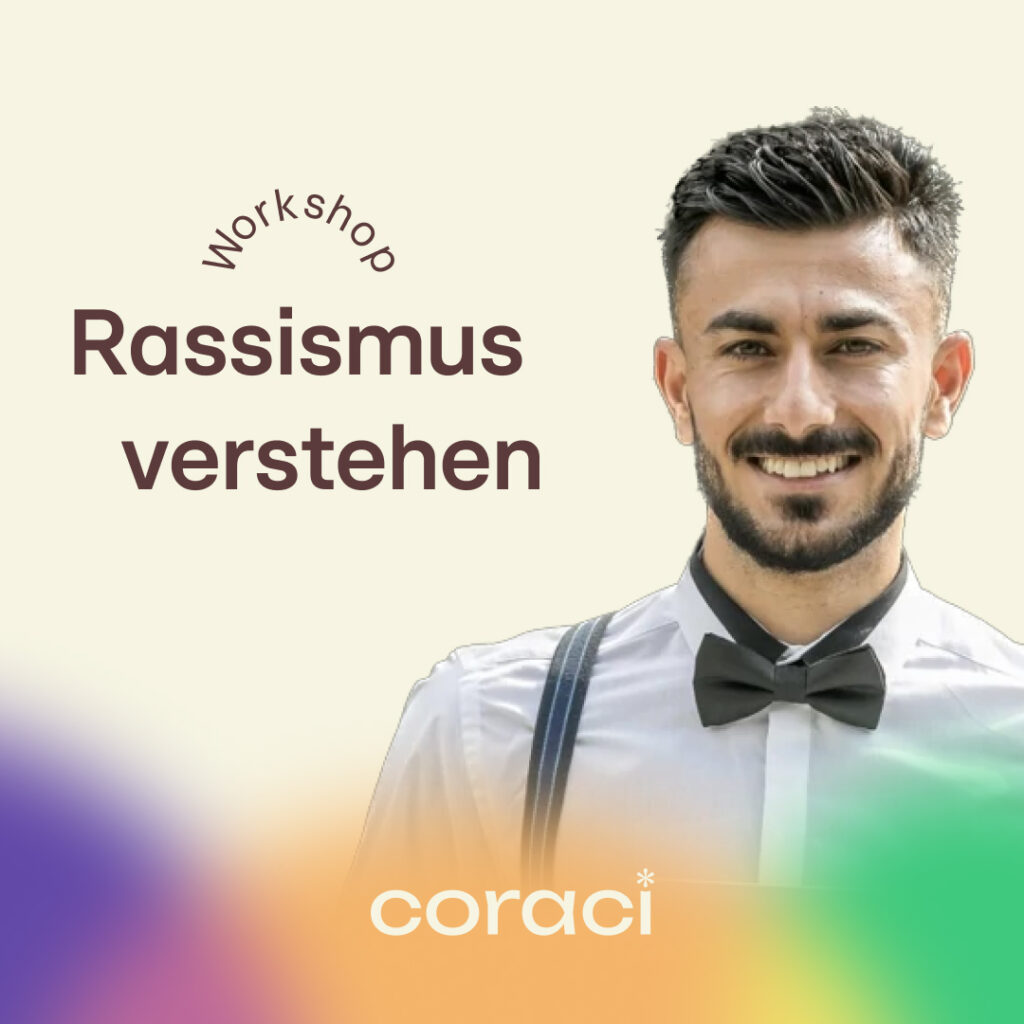The festival „contre le racisme“ (English: against racism), Coraci for short, is to take place again this year. As organizers, we would like to openly communicate that our team consists mainly of white people. In a white dominated society, which is structurally permeated by discrimination, we, as the majority of people who are not affected by racism, understand it as our social task to educate ourselves in the field of anti-racism. Furthermore, we want to use our privileges to give BIPoC (Black, Indigenous, People of Color) in particular more public space.
In the context of the festival, this means for us above all: offering black people and people of color a stage! We want to create a solidary space of exchange in which the perspectives of marginalized artists and initiatives are accessible to as many people as possible. At our festival we therefore focus on people who can be affected by racism, but at the same time also by other forms of discrimination. Exclusions from or devaluations within society based on origin, class, disabilities, gender/identity, sexual orientation or other characteristics that deviate from a supposed norm are often complicated, overlapping or intersecting and difficult to grasp. Therefore, it is even more important to understand them in their contexts. The intersectionality approach tries to make this complexity visible, which is why we also consider it important in our event organization. Of course, this also includes the critical reflection of one’s own positioning(s) in the team.
In our work process this year, we would like to make a special effort to incorporate the needs of non-white communities in and around Lüneburg. We consider listening to be an important anti-racist practice. At the same time, it is our self-demand to constantly actively learn and be open to unlearning. On the festival days themselves, we hope to create the framework for an exchange space where everyone feels as safe as possible to absorb new knowledge, share it, and rethink what they have already learned.
Together, at Leuphana University, we want to facilitate a political meeting of opinions and people whose focus is not on academia. Therefore, we especially strive to highlight forms of knowledge that exist outside of formal educational contexts and are often considered less valuable from a Eurocentric white perspective. Knowledge transfer does not only take place in the form of scientific texts and discussions, but also in the form of music, art and other learning formats. Thus, our goal is to provide access to important topics such as anti-racism to as many different people as possible through a diverse program offering, regardless of origin, class, disabilities, gender/identity, religion, or other characteristics that deviate from a supposed norm.
As a self-organized festival, all team members participate in Coraci on a volunteer basis and have varying degrees of experience in festival organization and anti-racism. In addition to paid work, studies and / or other activities and work, we can also participate in the creation of the Coraci only with as much capacity as our circumstances allow.



